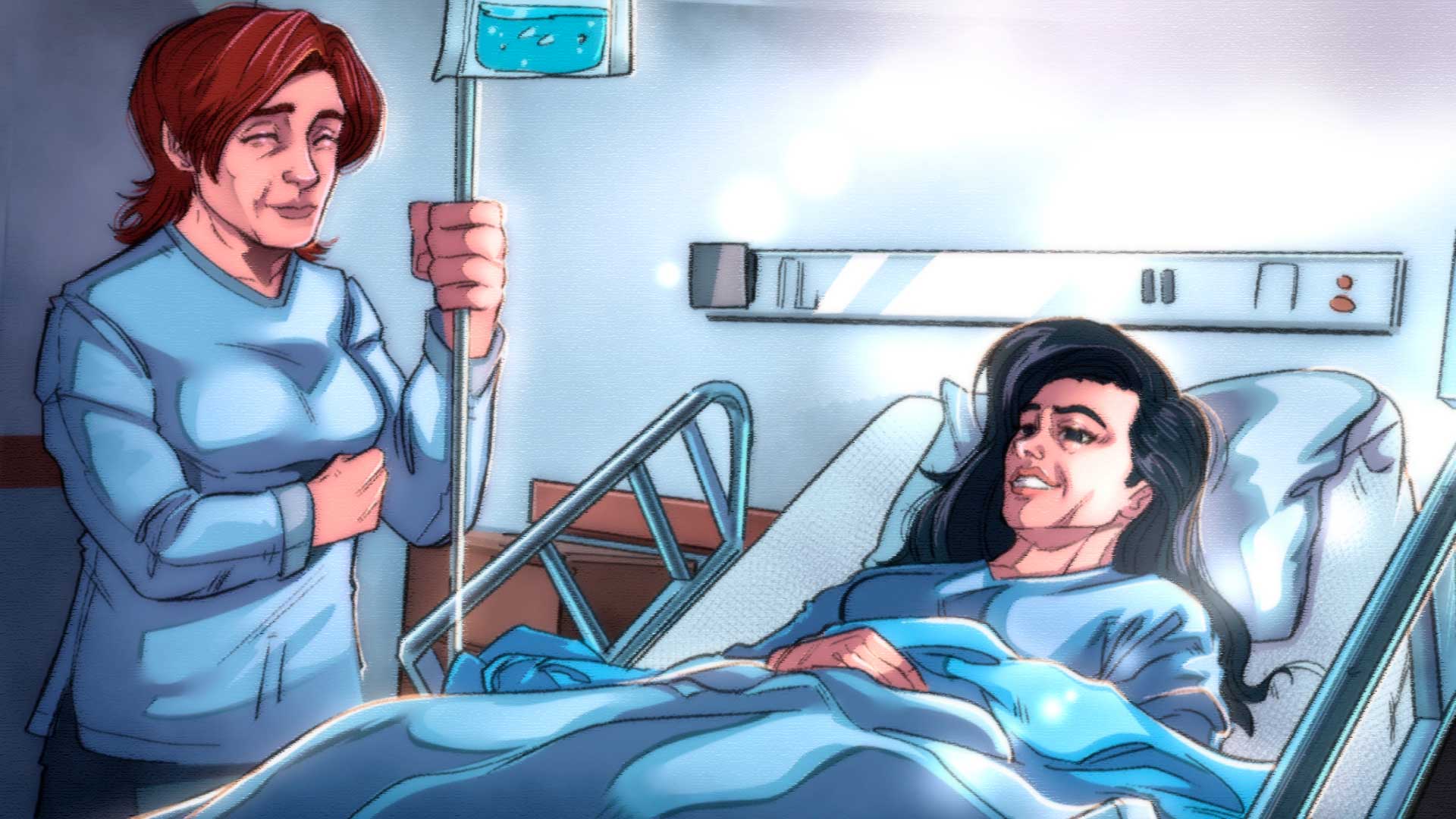


A medical doctor decides to donate a kidney to her sister to spare her from the grueling routine of dialysis treatment. This is the story of a transplant, an operation that many people in Venezuela can no longer opt for because on June 1, 2017 the Venezuelan Foundation for Organ, Tissue and Cell Donation and Transplantation (Fundavene), a body attached to the Ministry of Health, suspended the organ procurement and transplantation program.
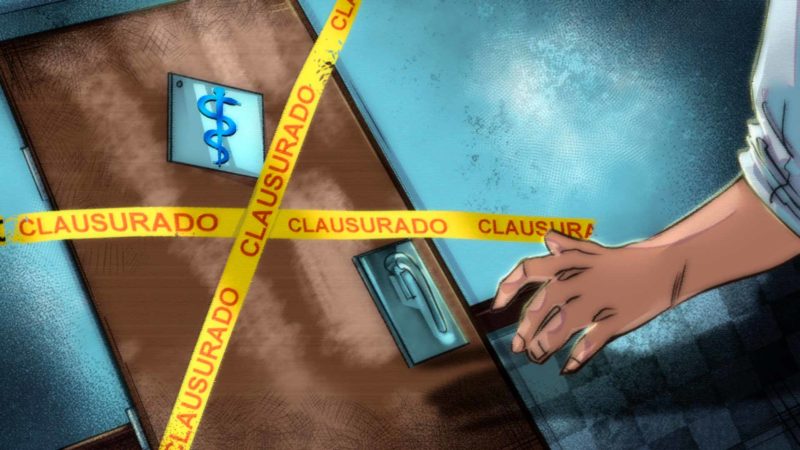 ILLUSTRATIONS: CARLOS LEOPOLDO MACHADO
ILLUSTRATIONS: CARLOS LEOPOLDO MACHADOOn Monday, March 11, 2013, I got the phone call that would change my life.
—“Hi, Achi. It’s me.”
It was my little sister’s voice, brittle and sad.
—“Hi, sweetheart. Is there something wrong? Are you crying?”
She was at the nephrologist’s office in the company of other family members finalizing the details for the kidney transplant she had been scheduled for the following week. She hadn’t stopped sobbing when she told me:
—“Tina was ruled out as a donor as soon as the doctor saw the results of her excretory urography,” she said.
Tina is my older sister. Kidney transplant surgeons prefer potential organ donors to have a left kidney with a single renal artery. It turned out that, according to the test in question, my sister had multiple thin renal arteries, which made her vascular anatomy unconventional and disqualified her from donation.
—“And what seems to be the problem, kiddo?”
We had already discussed the scenario where, if not my older sister, I would be the donor.
When the nephrologist informed my younger that her kidneys were not functioning properly and that she would soon have to undergo transplant surgery or, failing that, dialysis treatment, we looked into the possibility of her having a kidney transplant. We didn’t want her to be put on dialysis because it is a grueling and complicated process, even more so in a country then well on its way to a complex humanitarian emergency and whose health system was starting to collapse.
We went to the Dr. Miguel Pérez Carreño Hospital, one of the few public healthcare centers in Caracas where the transplant could be performed; there was also the Dr. Carlos Arvelo Military Hospital, but they mostly admitted military staff.
When we got there and asked information on the procedure, there were more than 200 patients on the list for a deceased-donor transplant; as for that of living-donors, patients with a dialysis history of five or six years were given priority, ergo we did not fit the criteria.
Based on the data available, over 50 percent of patients on dialysis may be eligible for transplantation. As reported by the Venezuelan Ministry of Health, approximately 12,000 people in the country have kidney failure and must receive dialysis two to three times a week for the rest of their lives, which has serious financial, social and psychological implications, including from the shortage of drugs and dialysis units —many of which have shut down for lack of maintenance and parts— and the cost of the required dialysis supplies. Therefore, the best option for renal failure patients would be a kidney transplant because it will spare them the whole ordeal.
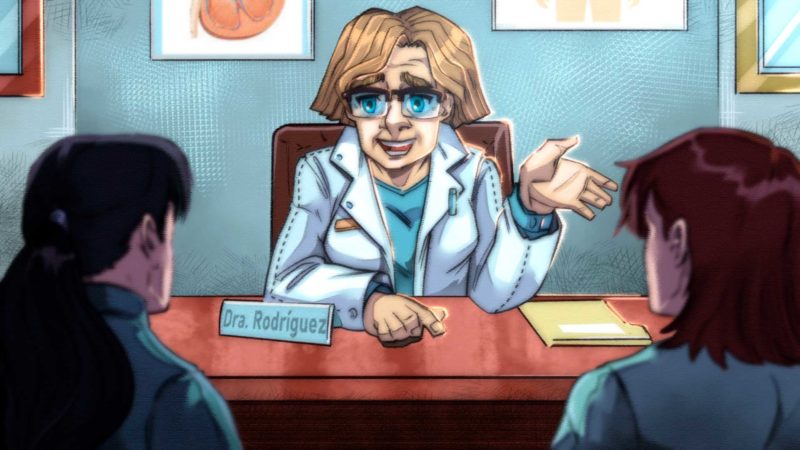
The Law on Organ and Anatomic Material Transplantation in Humans, in force since 1972, was repealed in 1992 and later amended in 2011. Its purpose is to regulate organ, tissue and cell donation and transplantation procedures in humans for therapeutic, research or teaching purposes.
Thanks to our support network and friends, we managed to get an appointment with Dr. Candelaria Rodriguez, the best Venezuelan nephrologist in the field, at her Clínica Santa Sofia office. Following a thorough examination, she agreed to take her as a patient and walked us through the procedure to determine which one of us two sisters was the best candidate to donate a kidney.
This is how it all began.
All three of us sisters went to the Transplant and Immunogenetics Unit of the Central University of Venezuela for human leukocyte antigen (HLA) testing. HLA screening is used to identify compatibility of a donor’s organ and tissue with those of the recipient, and is essential to determine the risk of graft or organ rejection.
The genetic tests turned sort of a multiple tie: the three Picott Rangel sisters were a match for the most part.
We continued with the prescribed tests.
I, for one, felt that my body was ready. I fervently desired to be the one to share a part of her being to make sure that our younger sister lived a dignified life.
But one afternoon, during one of our chats, Tina decided she would be the donor. She argued that she was the elder and that I had a small child (Guille, my baby, who was 3 years old at the time) and that, if unforeseen circumstances were to arise, I would no longer be there for him. She is not a doctor like me and she was wary of the surgery and its expected outcome, so we were deeply touched by her courage and generosity.
The day after my little sister’s call, I resigned from the job I had just accepted as a medical consultant for an insurance company. It didn’t seem fair or honest to me to file for a leave of absence on the grounds of the impending surgery. Much to my surprise, not only did they refuse to accept my resignation, but the firm’s CEO ordered that my salary and benefits be paid uninterruptedly from that moment on and for my entire convalescence. “It is an honor for this company to have such an admirable and generous employee as yourself,” he said.
I completed my serology tests to determine my immune response to infectious agents and my body’s creatinine clearance, which is crucial to ascertain how well my kidneys were functioning; I was also performed an excretory urography that showed that my left renal artery was as thick as a steel cable. Having passed all tests, I was ready for the surgery, as was my little sister.
The kidneys are two organs located at the back of the abdominal cavity and are responsible for filtering blood and excreting waste products and excess water into the urine, which is vital to regulate the body’s balance. The kidneys also secrete a variety of regulating substances such as renin, erythropoietin and the active form of vitamin D. When the kidneys cease to function, blood cannot be filtered, and waste products, electrolytes and fluid begin to build up, which, if not corrected by dialysis or transplantation, would lead to the patient’s death.
Before the operation, my sister’s face looked puffy, pale and sallow, a common symptom of chronic kidney disease. But, I swear to God, I never heard her complain, gripe about her condition or use it to manipulate people. As a matter of fact, it was hard to tell how she really felt because she dealt with her disease discreetly and kept it all to herself. Outside of our close family, few people knew about her condition.
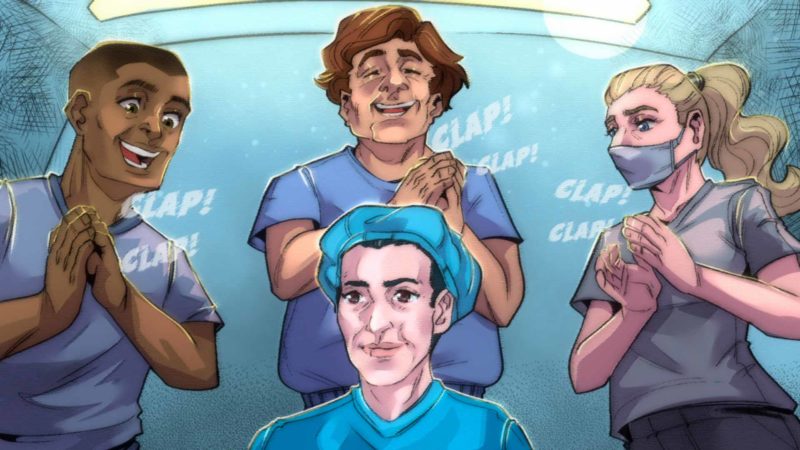
In the early hours of Monday, March 18, 2013, a nurse handed me the gown, cap and boots I was to wear while in the operating room. I put them on and an orderly took me down the long corridor to the elevator. One of the elevator’s passengers, seeing me on the stretcher in that outfit, asked me:
—“Excuse me for asking, ma’am, but… What are you going to be operated on? You look very healthy.”
I laughed at the comment and replied:
—“I am going to donate a kidney to my sister who has chronic kidney failure.”
What happened next was as unexpected as it was pleasant: people burst into applause and didn’t stop until we got to the floor where I was to get off. It was very exciting because it felt like a good omen of what would happen a few hours later. During a radical nephrectomy, the urologic surgeon removes the entire kidney and oftentimes additional structures such as the ureter. In my case, they decided to make a single incision of approximately seven inches. The procedure is referred to as posterior lumbotomy, which may appear aggressive if compared against laparoscopic kidney removal surgery, but it was the approach I chose to minimize the risk of organ injury.
My surgery was short as it just involved opening, taking out the organ and closing. In my little sister’s case, the surgeon had to place the new kidney inside her lower abdomen and then connect the artery and vein of the new kidney to the artery and vein in her pelvis.
And then the miracle happened.
Instantly, blood began to circulate through the new organ and my sister began to excrete toxins by the liter into her urine. The surgery performed by Dr. Gennarino Rosito and his team was a resounding success.
The next morning, Mariale came to visit me in my room and she was pushing herself a stand with a collection bag full of dark urine. She had a pink complexion and was smiling, bustling with life and happy; however, as soon as she saw me, my face all swollen and pale, she burst into tears.
She looked worried and I was too sore to tell her everything was okay, so I settled for a half smile and a thumbs-up.
After that day, our lives changed.
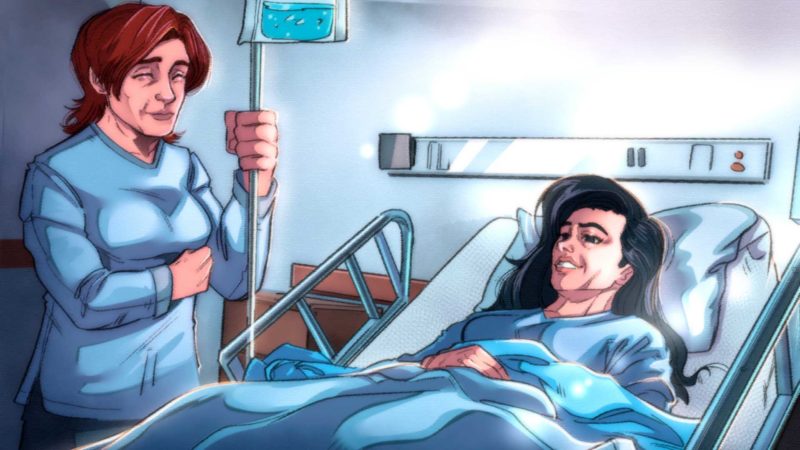
While I was convalescing, my beloved little sister made a speedy recovered and went on vacation to Europe with my dad and a friend.
I can hardly describe how happy I was to see her free, whole, adventurous, with no other concern than making up for lost time, neither can I put into words the feeling of satisfaction that comes with giving life in life.
On August 29, 2017, my baby sis passed away from a systemic infection that started with multifocal pneumonia. It was five years after the transplant, during which time she didn’t need dialysis and was able to live a dignified life with my kidney inside her body.
It is the State’s obligation to guarantee health care for all and make sure that the healthcare system is capable of satisfactorily and timely addressing the implications of organ transplantation in humans. Paradoxically, on June 1st of that same year, three months before her death, the Venezuelan Foundation for Organ, Tissue and Cell Donation and Transplantation, which is attached to the Ministry of Health, suspended the organ procurement and transplantation program, a decision that remains unchanged and one that deprives dozens of children, young people and adults of the possibility of experiencing the joy of life through the organ of a donor.
 This story was written within the framework of the “Narrative Medicine: Our Bodies also Have Stories to Tell” course taught to healthcare professionals via our El Aula e-nos online training platform.
This story was written within the framework of the “Narrative Medicine: Our Bodies also Have Stories to Tell” course taught to healthcare professionals via our El Aula e-nos online training platform.
1176 readings
I am a medical doctor with a specialization in anatomic pathology. I am also a university professor. My job is to watch cells and tissue through the microscope. I read poetry and write in prose. My friends say I am a literature lover on loan to science.